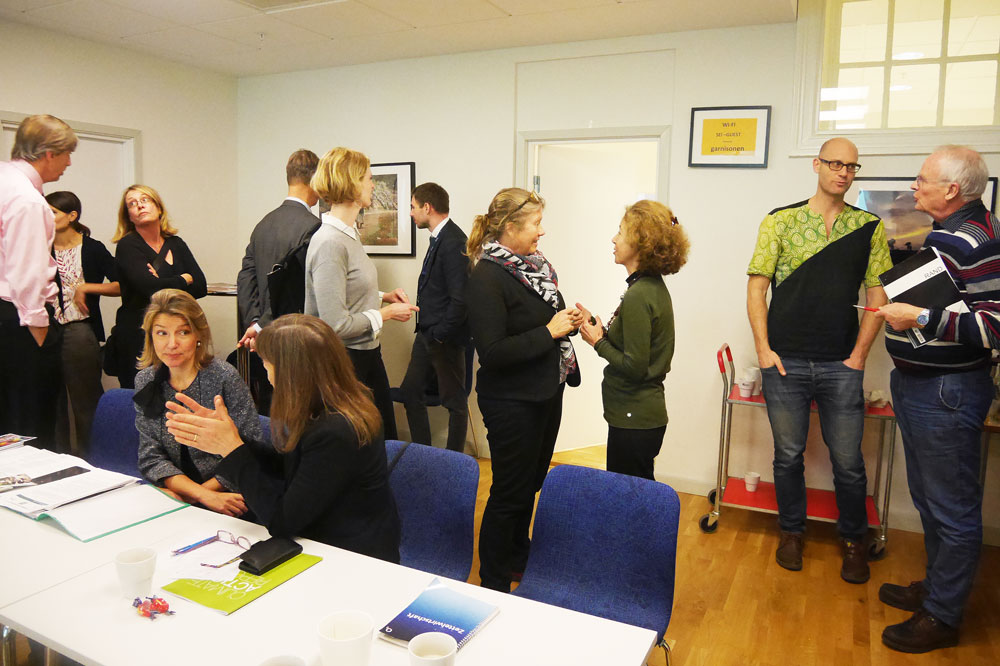Climate change is a global challenge and no single actor is able to confront it alone. Collaboration is at the heart of climate action. With that in mind SIANI organized an idea exchange session with representatives from IFAD, Sida, the Swedish Government, WeEffect, TetraLaval as well as SLU Global, SIWI, SEI and the University of Gothenburg. The meeting took place on the 6th of December 2018 at SEI in Stockholm and provided an opportunity for the participants to share experience and exchange ideas about the ways to improve conditions and capacity of rural communities to adapt to climate change.
Charlotte Salford, Associate VP, External Relations and Governance Department at IFAD spoke about the approach the UN Agency takes to eradicate poverty and hunger (SDG 1 and 2). “In order to bring value we seek to link agriculture, marketing and adaptation issues with economic, social and environmental dimensions. 70% of our work is about value chains. We also work on strengthening environmental sustainability and climate resilience of poor rural people’s economic activities”.
Sebastien Subsol presented The Adaptation for Smallholder Agriculture Programme (ASAP), IFAD’s flagship programme for channelling climate and environmental finance to smallholder farmers. The programme is supported by a multi-donor trust fund, including such contributors as Sida and GEF, and blends this funding with regular IFAD loans. The ASAP fund allows IFAD country programmes to design projects from a climate-informed perspective and leverage resources for technical assistance.
Esse Nilsson, Senior Policy Advisor at Sida shared the perspective of the donor agency on climate adaptation. Sida aims to strengthen resilience in institutions and in local communities through support to local interventions and work bilaterally in several countries. The most recent direction is to support livelihood diversification, social protection, bridging humanitarian- long-term development cooperation divide. “We could do more to engage with local communities. This is where the key to transformation and resilience lies. We need to recognise what people (in these communities) want and build up on what they already do – a crucial component to scaling up the solutions”, said Nilsson.
The exchange of knowledge at the event was enriched by interventions from Linus Dagerskog, SEI and Libère Nkurunziza, SLU Global. Dagerskog presented the Clean and Green Village Framework which provides a circular way to manage environment and health risks through building sustainable sanitation systems on a village scale. Nkurunziza spokes about the work SLU does for building higher educational and institutional capacity in partner countries through Master and PhD Programmes and policy advice.
